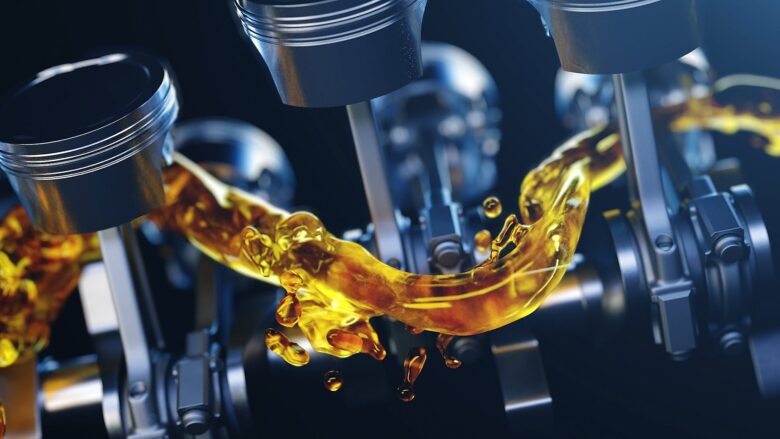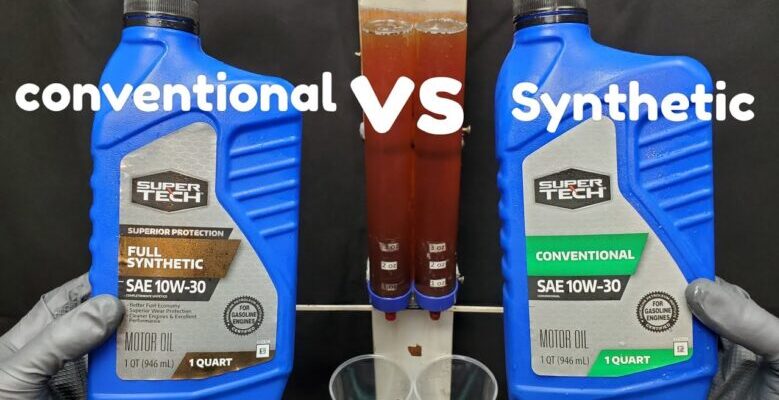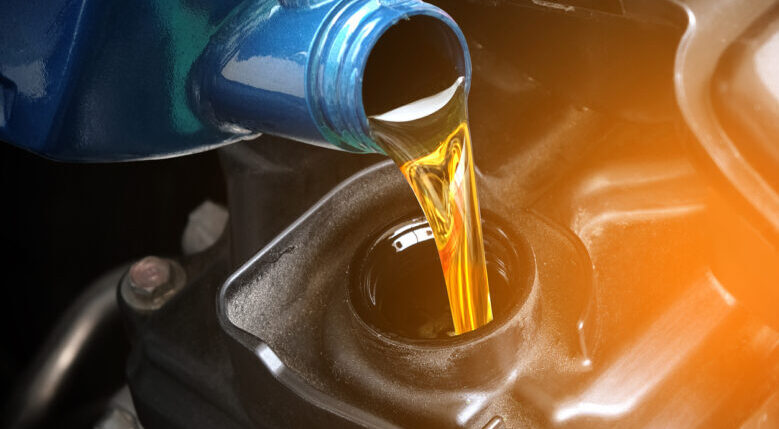Diesel engines, known for their efficiency and durability, are the backbone of many heavy-duty vehicles and machinery. Central to their performance is the lifeblood that courses through them: engine oil. This lubricant not only ensures smooth operation but also protects the engine from wear and tear.
The choice of the right diesel lubricant can significantly influence an engine’s lifespan and efficiency. This guide aims to shed light on the intricate world of diesel lubricants, helping you make informed decisions for your engine’s optimal performance.
Understanding Diesel Lubricants
At its core, a diesel lubricant is designed to reduce friction between moving parts in an engine, preventing wear. But it’s not just about lubrication.
These oils also help in cooling the engine, preventing corrosion, and cleaning internal parts. Unlike their gasoline counterparts, diesel engines operate under higher compression ratios, making them more prone to contamination.
This distinction necessitates specialized diesel lubricants that can handle soot and other contaminants more effectively.
Viscosity and Its Impact
Viscosity, often termed the ‘thickness’ of the oil, is a pivotal factor in diesel lubricants. It determines how easily the oil flows within the engine. An ideal lubricant should have a balanced viscosity, ensuring smooth flow at low temperatures while maintaining its protective layer at high temperatures.
Inconsistent viscosity can lead to inadequate lubrication, especially during cold starts or under intense heat, potentially compromising engine performance and longevity.
API Classification

Source: tirereview.com
The American Petroleum Institute (API) has established classifications for diesel lubricants, ensuring they meet specific performance standards. These classifications, represented by symbols on oil containers, provide insights into the oil’s quality, performance level, and suitability for various engines.
Understanding these symbols and their implications is crucial for selecting the right lubricant that aligns with an engine’s requirements.
Base Oil Types
Diesel engine oil can be broadly categorized based on their base oil: mineral, synthetic, or semi-synthetic. Mineral oils, derived directly from crude oil, are cost-effective but may lack advanced performance features.
Synthetic oils, engineered in labs, offer superior performance, especially in extreme temperatures, but come at a premium. Semi-synthetic oils strike a balance, blending the best of both worlds, offering enhanced performance at a moderate price point.
Additives and Their Functions

Source: rotella.shell.com
Additives, often overlooked, play a pivotal role in the efficacy of diesel lubricants. These compounds, each with a specific function, work in tandem to enhance the overall performance of the oil. Detergents, for instance, actively combat contaminants, ensuring the engine remains free from deposits.
Dispersants, on the other hand, prevent the formation of sludge, a common issue in diesel engines. Antioxidants are vital in prolonging the oil’s lifespan by preventing degradation due to oxidation. Meanwhile, anti-wear agents form a protective layer on engine parts, minimizing friction and wear.
Together, these additives ensure the lubricant not only meets but often exceeds, the demands of modern diesel engines.
Choosing the Right Diesel Lubricant
The process of selecting the perfect diesel lubricant is both intricate and nuanced. It’s not just about picking a popular brand; it’s about understanding the specific needs of your engine.
Factors such as the engine’s age, design specifications, operating conditions, and even the manufacturer’s recommendations play a crucial role in this decision.
OEM (Original Equipment Manufacturer) approved lubricants often undergo rigorous testing to ensure they meet the engine’s exact requirements.
Opting for these ensures a synergy between the engine and the lubricant, maximizing performance. A mismatch, however, can compromise efficiency, leading to increased wear and, in severe cases, engine damage.
Synthetic vs. Conventional Diesel Lubricants

Source: m.youtube.com
The age-old debate between synthetic and conventional diesel lubricants continues to be a topic of discussion among experts. Conventional oils, derived directly from crude oil, have been the staple for engines for decades, offering reliable performance.
However, synthetic oils, crafted in laboratories, bring to the table advanced engineering that offers superior temperature stability, enhanced engine protection, and extended oil life. While they do come with a heftier price tag, the long-term benefits, especially in extreme operating conditions, make them a worthy investment for those seeking the best for their engines.
Cold Weather Performance
Cold conditions present a unique challenge for diesel engines. In such environments, the lubricant’s performance can make the difference between a smooth start and potential engine damage. The oil’s viscosity, or its resistance to flow, becomes paramount.
If the oil is too thick, it won’t circulate quickly, leading to inadequate lubrication during startups. This is where low-temperature viscosity ratings come into play. These ratings, often specified by manufacturers, indicate the oil’s performance in cold conditions.
Choosing a lubricant that meets or exceeds these ratings ensures the engine remains protected, even when the mercury drops.
High-Temperature Stability

Source: dieselogic.com
On the flip side, diesel engines operating in sweltering conditions face their own set of challenges. In such scenarios, the lubricant must resist thinning out excessively, which can compromise its protective capabilities.
A lubricant that maintains its viscosity, even under intense heat, ensures that the engine remains cool, operates efficiently, and is shielded from potential wear.
This high-temperature stability is a hallmark of quality diesel lubricants, making them indispensable for engines operating in hot climates or under heavy loads.
Maintaining Diesel Lubricants
The journey of a diesel lubricant doesn’t end once it’s in the engine. Proper maintenance practices are vital to ensure it continues to perform optimally. This includes storing the lubricant in a cool, dry place to prevent degradation, handling it with care to avoid contamination, and adhering to regular oil change schedules as specified by the manufacturer.
Regular oil changes not only refresh the additive package, ensuring continued protection but also remove accumulated contaminants. By prioritizing proper maintenance, you not only guarantee peak engine performance but also significantly extend its operational lifespan.
Conclusion
Navigating the world of diesel lubricants might seem daunting, but with the right knowledge, it becomes a manageable task. Prioritizing the selection of the right lubricant is not just about immediate engine performance; it’s an investment in its longevity.
As you delve deeper into the intricacies of diesel lubricants, remember that the heart of your engine deserves nothing but the best. We recommend you read more about how a car engine works and read something you might not know already.
